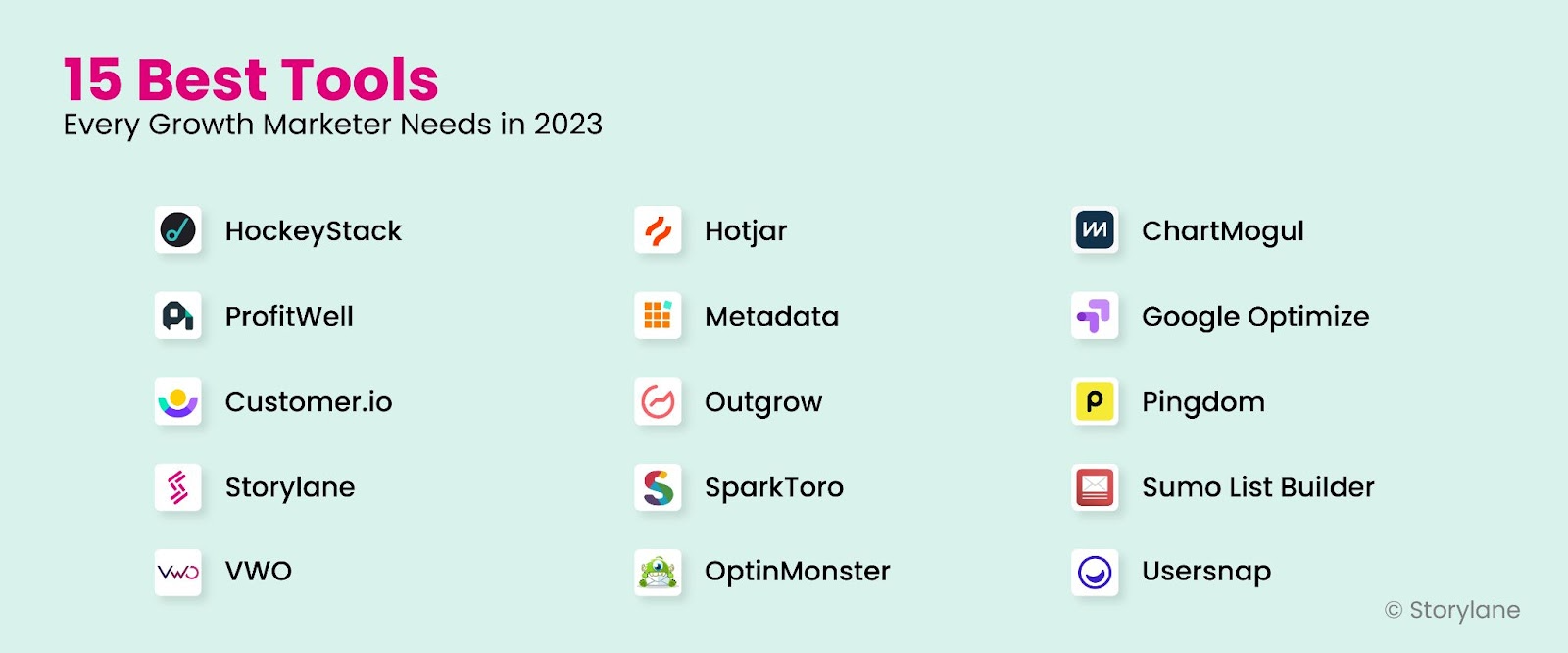
15 Marketing Tools Every Marketer Should Know About
Posted on April 5, 2022
In today’s digital world, marketing has evolved into a multifaceted practice where data-driven strategies, social media engagement, and targeted advertising are crucial. Having the right tools can make all the difference, enabling marketers to be more efficient, insightful, and impactful. Here’s a look at 15 essential marketing tools every marketer should know about to boost productivity, enhance campaigns, and drive results.
1. HubSpot
Purpose: All-in-One Marketing, Sales, and Service Software
Features: HubSpot offers tools for marketing automation, CRM, email marketing, and analytics. It enables marketers to manage inbound campaigns efficiently, track leads, nurture customer relationships, and measure performance.
Benefits: Integrates various marketing functions, offers a comprehensive dashboard and provides insights for improved lead generation and conversion.
2. Google Analytics
Purpose: Website Analytics and Visitor Tracking
Features: Google Analytics helps you monitor website traffic, track user behavior, analyze engagement metrics, and optimize your website for a better user experience.
Benefits: Free tool offering in-depth insights into website performance, providing valuable data for improving content and optimizing digital marketing strategies.
3. Hootsuite
Purpose: Social Media Management
Features: Hootsuite allows users to schedule posts, monitor social media interactions, track brand mentions, and engage with followers across multiple platforms.
Benefits: Centralized dashboard for social media management, time-saving scheduling features, and robust analytics for tracking performance on social channels.
4. Canva
Purpose: Graphic Design Tool
Features: Canva provides templates, design elements, and easy-to-use tools for creating graphics, social media posts, presentations, and marketing materials.
Benefits: User-friendly for non-designers, offers customizable templates, and supports collaboration for teams on design projects.
5. Mailchimp
Purpose: Email Marketing and Automation
Features: Mailchimp is an email marketing tool that offers customizable email templates, A/B testing, automated workflows, and audience segmentation.
Benefits: Simplifies email campaigns, offers insights on open rates and click-throughs and helps in segmenting audiences for targeted communication.
6. Ahrefs
Purpose: SEO and Competitor Analysis
Features: Ahrefs provides tools for keyword research, backlink analysis, content analysis, and competitor benchmarking.
Benefits: Extensive data on keywords, detailed backlink profiles, and competitor insights to improve SEO and content marketing strategies.
7. SEMrush
Purpose: SEO, PPC, and Content Marketing
Features: SEMrush offers tools for keyword research, site audits, SEO tracking, PPC analysis, and content optimization.
Benefits: Comprehensive marketing toolkit that provides insights on improving organic and paid search efforts and competitive analysis for digital marketing.
8. BuzzSumo
Purpose: Content Research and Influencer Marketing
Features: BuzzSumo allows marketers to discover trending content, analyze competitor content, and identify top influencers in any niche.
Benefits: Helps in identifying popular content ideas, tracking social shares, and finding collaboration opportunities with influencers.
9. Sprout Social
Purpose: Social Media Management and Analytics
Features: Sprout Social provides a platform for scheduling, engaging, listening, and analyzing social media performance.
Benefits: Helps streamline social media management, enables tracking of brand mentions, and provides analytics to enhance social strategy.
10. Moz
Purpose: SEO Tools and Software
Features: Moz offers keyword research, site audits, rank tracking, and backlink analysis tools to improve SEO efforts.
Benefits: Comprehensive SEO toolset that aids in keyword strategy, improving website performance, and understanding competitor landscape.
11. Unbounce
Purpose: Landing Page Creation and Optimization
Features: Unbounce enables the creation and testing of landing pages, pop-ups, and sticky bars with a focus on conversion rate optimization.
Benefits: Simplifies the process of creating effective landing pages without coding, helping to improve conversion rates with A/B testing.
12. Marketo
Purpose: Marketing Automation and Lead Management
Features: Marketo offers automation for email marketing, lead nurturing, CRM integration, and analytics.
Benefits: Effective for managing lead generation campaigns, tracking customer journeys, and enhancing customer relationships with automation.
13. Trello
Purpose: Project Management and Team Collaboration
Features: Trello offers boards, lists, and cards for organizing tasks, tracking progress, and collaborating with teams on projects.
Benefits: Simplifies project management with visual task tracking, supports team collaboration, and is ideal for managing content calendars and marketing projects.
14. Google Ads
Purpose: Online Advertising and PPC
Features: Google Ads provides tools for creating search and display ads, targeting specific audiences, and measuring campaign performance.
Benefits: Access to a large audience through Google’s network, the pay-per-click model for cost control, and detailed analytics for ROI measurement.
15. Salesforce
Purpose: Customer Relationship Management (CRM)
Features: Salesforce provides tools for managing sales leads, automating workflows, tracking customer data, and integrating with marketing tools.
Benefits: Comprehensive CRM platform with customization options, enabling marketers to manage customer relationships and streamline sales processes effectively.
Conclusion
Each of these tools plays a unique role in a marketer’s toolkit, from managing social media to optimizing SEO, creating engaging content, and analyzing performance. Integrating a combination of these tools can streamline processes, drive engagement, and elevate your marketing strategy. For marketers looking to scale and make data-driven decisions, these tools are indispensable assets in achieving sustained success.
Categories: Sales & Marketing
